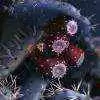-
Welcome to Celiac.com!
You have found your celiac tribe! Join us and ask questions in our forum, share your story, and connect with others.
-
Celiac.com Sponsor (A1):
Celiac.com Sponsor (A1-M):
-
Get Celiac.com Updates:Support Our Content
Iodine In Organic Dairy
-
Get Celiac.com Updates:Support Celiac.com:
-
Celiac.com Sponsor (A17):
Celiac.com Sponsor (A17):
Celiac.com Sponsors (A17-M):
-
Recent Activity
-
- Florence Lillian replied to Jay Heying's topic in Gluten-Free Foods, Products, Shopping & Medications5
Celiac friendly probiotics
In response to your questions regarding probiotics. I have had Celiac for 40 years. Stomach issues: digestion, IBS to chronic constipation, bloat after eating anything. I was unable to eat a healthy variety of foods, tried probiotics supplements - some made me worse, others made no difference. After reading about people with Crones, IBS, etc, who made... -
- slkrav posted a topic in Introduce Yourself / Share Stuff0
Gluten free beer ?
Help me out here. Lauren Dam gluten-free beer from Spain is listed as gluten free. Yet its made from Barley Malt. I thought barley and any form had gluten. Anybody have any more information about it? -
- cristiana replied to Colleen H's topic in Gluten-Free Foods, Products, Shopping & Medications16
Ibuprofen
Ferritin levels. And see what your hemoglobin looks like too, that will tell you if you are anemic? You can have 'low normal' levels that will not be flagged by blood tests. I had 'low normal' levels, my lab reading was. c12, just over what was considered normal, but I had small benign lesion on my tongue, and sometimes a sore mouth, and a consultant maxillofacial... -
- Mari replied to KathyR37's topic in Coping with Celiac Disease5
New here
Hi Katht - I sympathize with your struggles in following a gluten-free diet and lifestyle. I found out that I had Celiac Disease a few months before I turned 70. I just turned 89 and it has taken me almost 20 years to attain a fairly normal intestinal function. I also lost a lot of weight, down to 100 lb. down from about 140 lb. What Trents wrote you was... -
- Colleen H replied to Colleen H's topic in Gluten-Free Foods, Products, Shopping & Medications16
Ibuprofen
Yes thyroid was tested.. negative Iron ...I'm. Not sure ... Would that fall under red blood count? If so I was ok Thank you for the detailed response..☺️
-



Recommended Posts
Archived
This topic is now archived and is closed to further replies.